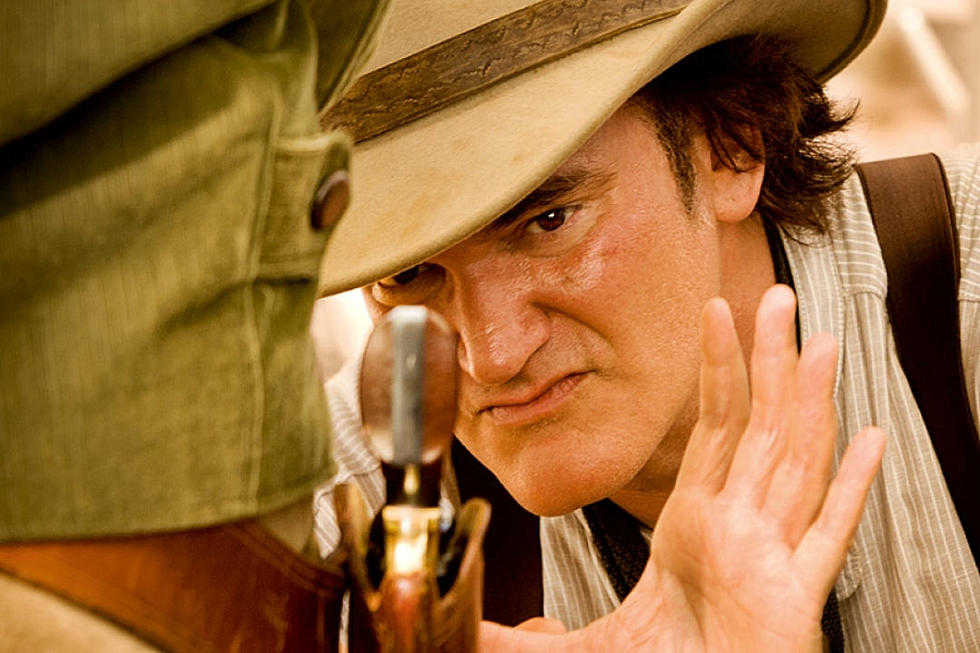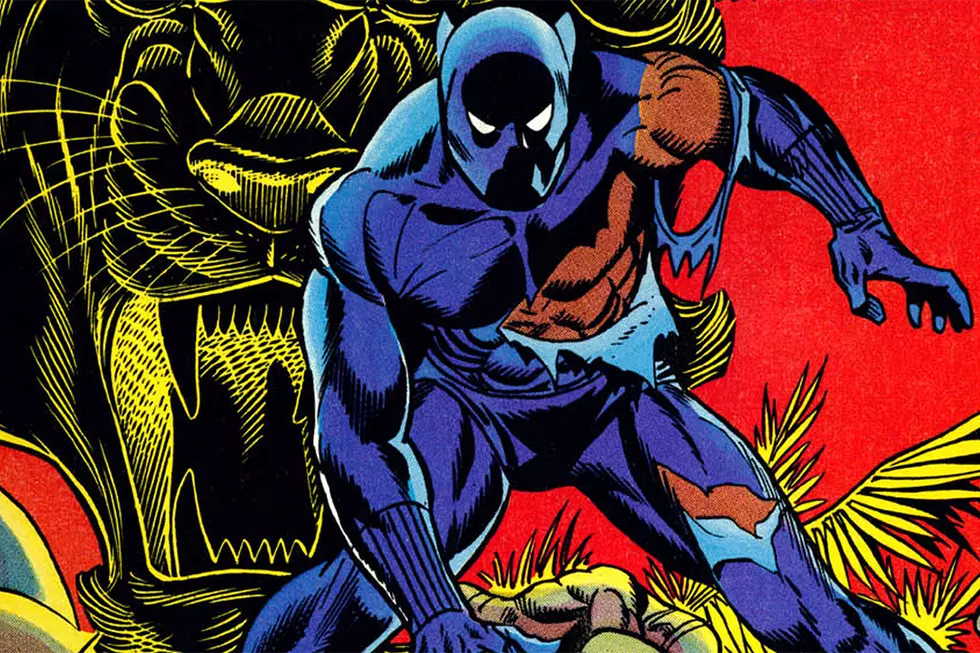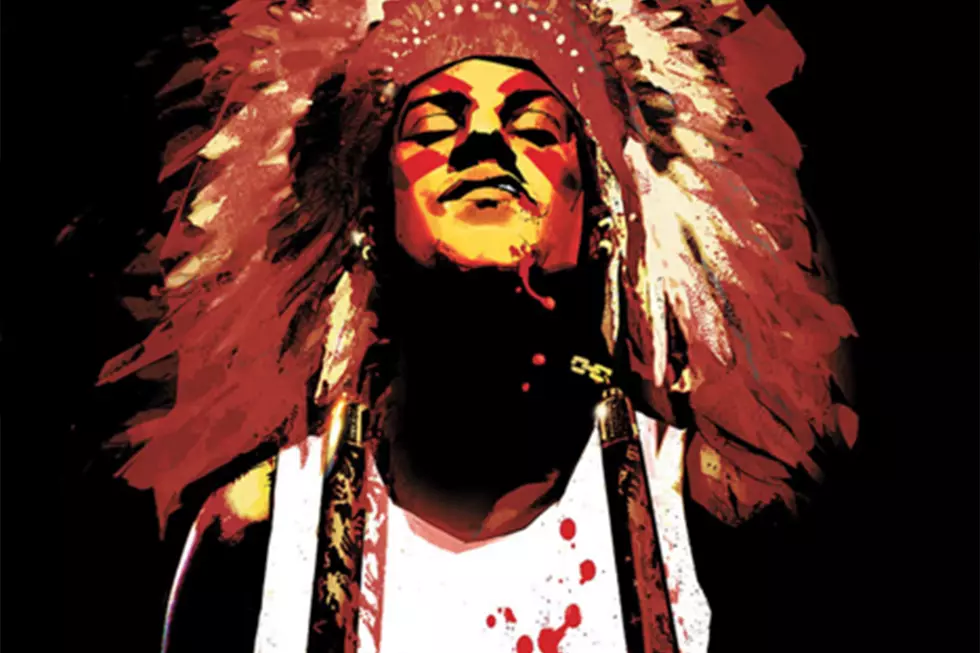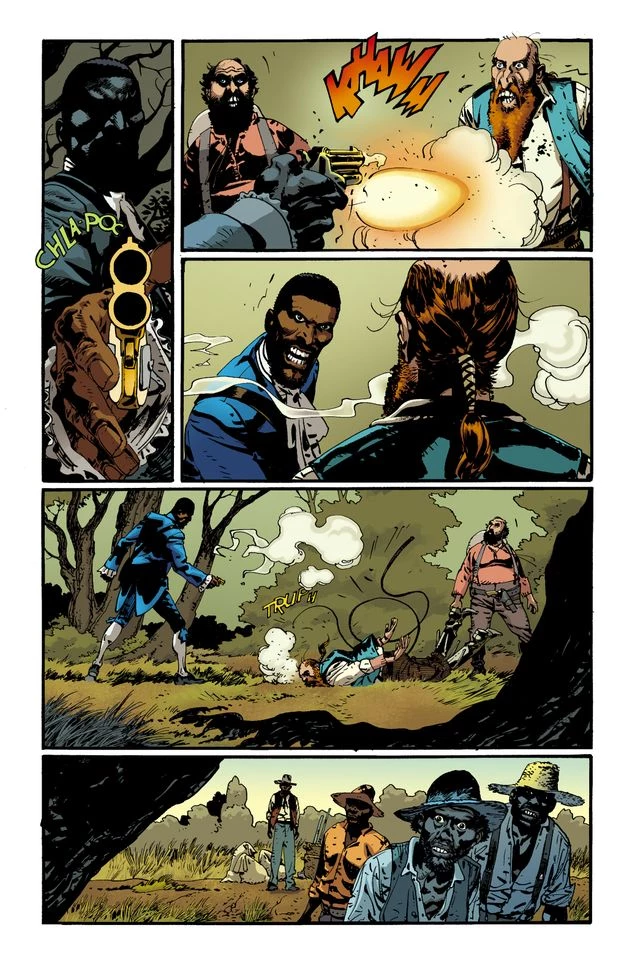![‘Django Unchained’ Producer Reginald Hudlin Talks Bringing the Film To Comic Form [Interview]](http://townsquare.media/site/622/files/2013/01/django-lede.gif?w=980&q=75)
‘Django Unchained’ Producer Reginald Hudlin Talks Bringing the Film To Comic Form [Interview]

Reginald Hudlin has worn a lot of hats. He's been a producer, comic writer, and director, amongst other work. Recently, Hudlin's applied two of those skills to one project, as both a producer on Quentin Tarantino's Django Unchained and, as it turns out, the writer who's adapting the film into a miniseries for DC Comics, along with artist R.M. Guera.
ComicsAlliance had a chance to speak with Hudlin about writing the Django Unchained comic, talking comics with Tarantino, and the very real possibility of Kill Bill someday being adapted as a comic as well.
ComicsAlliance: Talk a bit about how this comic came about. It's meant to include things that were cut from the final film. What made you, director Quentin Tarantino, and everyone else behind the decision come to the conclusion that a comic adaptation was the right way to tell this story in full?
Reginald Hudlin: Well, it always seemed a little odd to me that Quentin had never done anything in the comic book medium, you know? He's such a fan, and we spend a lot of time talking about comic books. He likes to publish his screenplays as written, with no photographs, no images, so they kind of stand alone as a piece of literature. But given how many changes we were making to the screenplay while we were making the movie, because we'd say "Oh, this actor has a new idea," or "Quentin has a new idea," or something with the location, and we'd kind of change things around. And then of course with the movie we had to cut a lot of things just to get it to the 2 hours and 45 minutes that it was, so we had to cut a lot of scenes that were our favorite material. So the idea of doing a comic book that had all that original stuff just seemed like a good idea. It seemed like a good extra bonus for readers.
CA: Like you said, Tarantino hasn't done comics before, and you were surprised by that, but you obviously have.
RH: Yeah, I mean, it's cool. I've done them before, but he's very comic book literate [laughs]. And the same way that we would spend hours discussing obscure movies and obscure TV shows, we would also discuss obscure comic books. Not just Marvel and DC, but Gold Key, Charlton, Dell, you know. We would go deep in the stacks as we talked about comics [laughs]. So it just seemed crazy to me that he had never done this. So I just said "Look , this is for you, this is your world. You need to be here." And when he was flipping through the pages of the first issue, he was just so happy, and he turned to me and said "I can't believe we've never done this before." And I said "Yeah, can you imagine a Kill Bill comic! That'd be pretty cool."
CA: It's not too late. I'm just putting that out there...
RH: No, no, it's not too late! I promised him that going forward we would make sure that this oversight would never happen again. I'll have to take a hard look at going back to some of those classics and maybe revisiting those as well.
CA: Again, you have experience writing comics, with your run on Marvel's Black Panther and your work on the graphic novel Birth of a Nation. But this was adapting a screenplay into comic form. How has this experience been different from your previous comic work?
RH: The trick is, you know, when you read a Quentin Tarantino screenplay, you see the movie in your head. That's one of the reasons why he's not just a great screenwriter. The prose really sings on the page. So the trick is, he's writing something incredibly cinematic, and so you're taking something that's very cinematic, and you have to translate it into another medium, this comic book medium. And there are certain things you can't do. When he invokes that camera move in your head, well, you know we don't quite have camera moves in comics. A character can't nod his head, so he has to verbalize what he's saying. You don't have music and sound effects as tools in your toolbox. But that said, sometimes removing tools from your toolbox can increase your storytelling strength, because you have to say "Okay, well, how do I convey this idea?" So the challenge is exciting.
CA: You're working with R.M. Guera, a very accomplished artist who previously worked on Scalped, a comic that, like Django Unchained, is partially inspired by Spaghetti Westerns. What's it been like working with him? Were you familiar with his work before this collaboration?
RH: Oh, absolutely! I'm a huge, huge fan of Scalped. It's a brilliant comic, brilliantly written and brilliantly drawn. We had a number of artists who were interested in the job, and when [Tarantino] picked Guera I was very excited. I think that having the right artist is a huge part of the job. You can just go "Okay, well, if I've got a script by Quentin Tarantino and art by R.M. Guera, there's very little I can do wrong!" [Laughs].
CA: There's been a lot of critical and commercial success with the film, but there's been some controversy behind it as well, due to the violence, the language and the subject matter. Has that in any way shaped how you've gone forward in working on the comic?
RH: No. Well, first of all, I was working on the comic while we were still shooting the movie. And secondly, we made the decision really early on to make the comic book be the comic book, which is different from the movie. If anything the idea is that people can read the comic, they can see the movie, they can see what we changed, what we left out, what we kept in, and they can decide for themselves if those choices were good or not. We want people to look at the text and really think about those choices and go "Wow I'm glad they took that out, they didn't need that," or "Man, I wish they had put that thing in!" That part of the discussion is great.
CA: Your name isn't in the first issue, and the fact that you're the one writing the adaption is just coming out now. Was there anything specific behind that decision? Was it just a timing issue?
RH: It was just a crazy time. We were finishing the movie and trying to get the book out, you know, so the last thing I was thinking about was credit! For me, it's Quentin's story and it's Guera's art, and that's kind of what was important to me. And the folks at DC said "You know, could we tell people that you're writing this thing?" [Laughs] And I just said "Okay, if you really want." That really wasn't what was important to me, but our partners asked and I just said "Sure!"
CA: Have there been scenes you find are easier or more difficult to translate into a comic?
RH: Again, it's pretty easy. I mean, the thing about this kind of adaptation work is really that you learn a script in an incredibly intimate way. It's kind of like doing a cover version of someone's song. You really go "Oh, I see how well this is constructed." And that's the fun of working on it, particularly after being deep in shooting and revisiting some of those dialogue changes and scenes that were left out. We knew why we had to make cuts – the movie is pretty long even in this version. But it's great to revisit some of those little scenes and go "Man, this is good stuff. This is really, really good stuff." [Laughs]
CA: Any hints as to what we can expect to see that isn't in the film?
RH: Well, you know, every actor kind of has some of their favorite moments that have to go away for the greater good of the film. But I know Sam Jackson and Jamie Foxx and Kerry Washingtong and Christoph Waltz all had some of their favorite moments not make it. It's a shame we don't get to see all of their magnificent performances because they were great every day all day. But at least you get to see a hint of some of the great work they delivered throughout the filming in some medium. I know Sam is a big comic fan himself. We run into each other at Golden Apple on occasion. And he was one to say "Hurry up and get to my scene!" [Laughs]
CA: I've heard Samuel L. Jackson is a comic fan, so did he – or anyone else in the cast – come up to you at any point and say "Hey, I know this got cut, so you better put it in the comic!"
RH: [Laughs] No pressure! But I'm always proud that I'm the guy who told Sam "Go to the store and grab The Ultimates because you're in it!"
CA: Ha! You were the one who first told him that?
RH: Oh yeah. So, you know, we have a great comic book relationship!
Django Unchained #1 is on sale now in your local comic shop and is available digitally from Comixology. Issue #2 will be available February 13th.
More From ComicsAlliance
